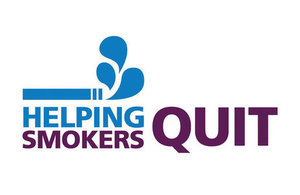London Clinical Senate: reducing tobacco harm in the capital
The Helping Smokers Quit Programme is a call to action for all clinicians in London to tackle tobacco dependence.

Summary
In London today, there are an estimated 1,125,000 smokers. Across London’s boroughs smoking causes around 8,175 deaths each year, and costs £2 billion, including direct costs to the NHS in England of £250 million.
Helping people stop smoking is the single highest value contribution to health that any clinician can make and yet cost effective and clinically effective diagnostic tools and treatments are substantially underused by NHS clinicians across specialties, professions and settings.
Case study
Helping Smokers Quit is a programme designed to reduce the harm caused by tobacco, reduce health inequalities and to champion value-based care across London. The goal is to ensure that every London clinician knows the smoking status of each patient they care for and has the competence and the commitment to encourage and support that patient to stop smoking through direct action or referral.
What was involved
The London Clinical Senate is an independent organisation that supports the development of London’s health services. The Senate launched the Helping Smokers Quit Programme to support behaviour change within clinical teams and across care setting and specialities in London. It ran from September 2014 until May 2016.
An important part of this was the development of the CO4 campaign as a practical and achievable way of identifying and treating tobacco dependence in London.
CO4 refers to 4 elements:
- The ‘right’ COnversation for every patient and staff member who smokes that gives him or her a chance to quit, referring if necessary. This is a skilled conversation that requires the right training.
- Make routine near-patient exhaled carbon monoxide (CO) monitoring by clinicians, at desktop, bedside and home, possible through the routine provision of CO monitors and training in how to use them with a patient as a motivational tool: “Would you like to know your level?”
- COde smoking status and the intervention so we can evaluate effectiveness, including death certification.
- COmmission the system to do this right: so the right behaviours are incentivised systematically.
Underpinning this is a challenge to clinicians to shift from the mental model of ‘smoking as a lifestyle choice’ to smoking as a treatable dependency, a long-term, intermittent and relapsing condition that often begins in childhood.
The London Clinical Senate asked all London health organisations to commit to CO4. CO4 has been widely tested with trusts and clinical commissioning groups, and has received overwhelming support from those who have heard the team deliver the messages.
Dr Noel Baxter, NHS Southwark CCG and London Clinical Senate:
Smoking prevalence is falling but health professionals are seeing people with smoking related disease in a third of our hospital beds and in at least a quarter of the people being seen in primary care surgeries.
The opportunity to have an impact on health inequity is there, and with the right commissioning we can provide the capacity too. Are we as health professionals motivated and ready now to do this?
What works well
A planned communications strategy that:
- identifies and targets clinical leaders by asking them to commit to CO4
- summarises the latest evidence and generates consensus where evidence is missing and also on wider problems such as smoking and poverty
- aims to shift the predominant mental model from ‘lifestyle choice’ to ‘treatable dependency’
- offers practical how to tools, such as CO monitoring, and asks all clinicians to commit to trying them
An example of an area where evidence was missing was around the use of varenicline on all hospital formulary. When treatment is supplemented by behavioural support, varenicline (Champix) has been shown to be the most effective licensed, stop smoking treatment currently available but is widely underused.
The programme team produced a varenicline guide, with the help of the London Procurement Partnership, to address this problem. This has been used widely in hospitals across the country.
Peer support also works extremely well. Peer support visits were organised to a number of trusts. In addition, the London Clinical Senate invited applications for awards, and hosted an Awards Event in March 2016 to recognise and share best practice examples from across London.
Oxleas NHS Foundation Trust and Bexley and Greenwich Stop Smoking Service, for example, have used CO4 as a CQUIN target for 2016 to 2017 and introduced the use of CO monitors on all wards.
Whittington Health NHS Trust has worked with commissioners and public health to fund stop smoking specialists who work within clinical teams and implement a CQUIN for identification of, and interventions for, tobacco dependence in inpatient and outpatient services including paediatrics.
Mandatory electronic documentation of smoking status and stop smoking specialists being part of clinical teams has enabled tobacco dependent patients to be treated in ‘the right place at the right time’, such as:
- inpatients
- in clinics
- in antenatal clinics
- in their homes
It has also enabled training of a wide range of health professionals to more effectively identify and treat tobacco dependence.
CO4 has also been promoted by ASH and Public Health England as a positive example of tackling the problem of harm from tobacco dependence.
Next steps
Tobacco dependence needs to be tackled at a systems level with a commitment from all partners. The development of Sustainability and Transformation Plans (STPs) in London offers a real opportunity for a step change in tackling tobacco dependence across health and care system within each footprint. London’s 5 STPs should clearly set out responsibilities and actions for addressing tobacco dependence agreed by all partners.
Further information
Email: [email protected]